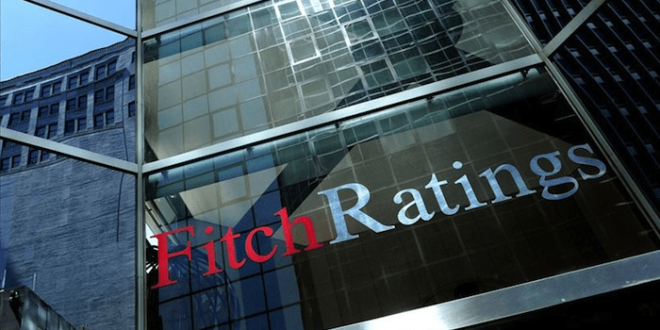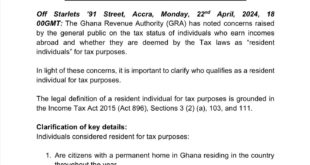International Ratings agency, Fitch, says Ghanaian banks are well-positioned to absorb the increased asset quality risk from borrowers pressured by the economic effects of the coronavirus pandemic.
According to the UK based firm, the covid-19 pandemic-induced defaults will add to legacy asset quality issues, but strong operating profitability and improved capitalisation meant banks are on a sound footing to absorb the risks.
“Pandemic-induced defaults will add to legacy asset-quality issues linked to loss-making state-owned energy companies and bulk oil distribution companies that suffered from currency depreciation and delays in government subsidy payments.”
“The sector entered the crisis strengthened by recent initiatives led by the government and the Bank of Ghana (BoG) that addressed energy sector asset quality issues, raised minimum capital requirements and resulted in consolidation”, it emphasised.
Ghana’s growth rate is expected to have shrank to 2% in 2020, from 6.5% recorded in 2019. This is as a result of lockdown measures and the global shock on trade and financial flows, with the oil and gas and manufacturing sectors experiencing the steepest contractions.
Fitch pointed out that the slowdown of the economy has weakened the repayment capacity of households and businesses, although debt-relief measures provided to customers have limited the impact on asset quality.
The banking sector’s non-performing loans ratio increased only modestly to 14.8% at the end of 2020 (end-2019: 14.3%).
The Bank of Ghana recently disclosed that 9% of banking sector loans had been restructured.
This the ratings agency said is much lower than in other Sub-Saharan African markets under its coverage. Moreover, loans are only a small proportion of the sector’s overall assets.
Loans benefitting from debt relief are largely classified as performing but expected to see NPLs increase moderately as these measures slowdown this year.
Banking sector indicators very strong
According to the Monetary Policy Report, the various banking indicators- Capital Adequacy, Liquidity and Non-Performing Loans ratio remain strong.
Solvency which is the ability of a bank to meet its financial obligations and liquidity indicators remained strong.
At the same time, the banking industry’s Capital Adequacy Ratio of 19.8%, was well above the regulatory minimum threshold, as of December last year. Core liquid assets to short term liabilities were estimated at 27.8% in December 2020 compared with 30.5% a year ago.
Disclaimer: MyGhanaMedia is not responsible for this report and its content.There are four types of content published on MyGhanaMedia daily: curated content; syndicated content; user-generated content; and original content.
Send your news stories to myghanamedia@gmail.com and Chat with us via WhatsApp on +233 2008187
 MYGHANAMEDIA.COM Best Source Of Latest News
MYGHANAMEDIA.COM Best Source Of Latest News




